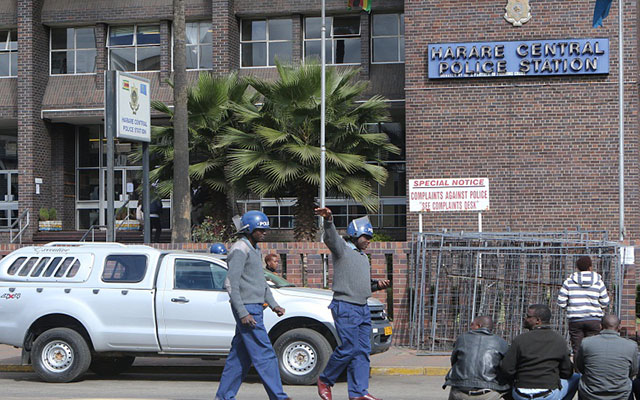By Farayi Machamire
The Zimbabwe Republic Police (ZRP) has redeployed nationwide close to 400 police officers and suspended 19 others amid allegations of various acts of misconduct as it continued with its acts of trying to win back public confidence following the fall of its former chief Augustine Chihuri who was widely blamed for the rot at the force.

ZRP’s latest action comes on the back of purges of senior officers who were perceived to have been close to Chihuri who was the first to be cut loose by President Emmerson Mnangagwa last December as he reconfigured the security sector.
On Tuesday, the ZRP sent out radio communication to all its stations dotted across the country — announcing the redeployment of officers as well as the suspension of the 19 Morris Depot officers — in another development aimed at re-shaping its battered image.
Among those suspended were seven assistant inspectors and 12 constables.
The suspended police officers were ordered to report to the ZRP detention barracks at Support Unit pending trial.
“The following transfers have been approved and should be implemented immediately,” read a transcript of the radio instruction, which went on to quote names of law enforcement agents and their ranks.
“Please submit casualty returns by 12 February 2018 as soon as the transfers have been implemented,” it concluded.
Police chief spokesperson Senior Assistant Commissioner Charity Charamba yesterday confirmed the transfers but directed all questions to deputy spokesperson Paul Nyathi.
Nyathi said he was in a meeting and would comment later by had not done so by the time of going to print.
Among the 19 suspended police officers whose cases will be heard before a suitability board, which will determine whether they remain police officers, is 27-year-old Hardlife Maukazuva.
Maukazuva was in December last year accused of trying to burn Chihuri’s house during an exchange of gunfire with a colleague who was guarding the former police supremo’s home in Greystone Park.
Heavily armed soldiers had to be dispatched to Chihuri’s home following the surprise shoot-out between Maukazuva and his colleague.
Chihuri was not at home at the time of the incident as he joined other service chiefs at the renaming ceremony of the KGVI Barracks by Mnangagwa, near the State House.
Police officers assigned to guard VVIPs are confined to guarding duties and are barred from gaining access into the homes of their subjects unless cleared to do so under special circumstances.
Maukazuva was alleged to have breached that protocol as he was accused of trying to steal a television set in Chihuri’s house before allegedly attempting to torch it.
His case is before the courts where he is facing charges of unlawful entry into Chihuri’s property in aggravating circumstances, malicious damage to property and attempted murder.
Since Mnangagwa assumed the reins in government, he has been ringing changes in government departments including security agencies such as the President’s Office where he sent packing senior intelligence operatives in the spy agency, the Central Intelligence Organisation (CIO).
Mnangagwa’s reforms in the police have earned him plaudits from the general public which had, during the era of former president Robert Mugabe, protested against Chihuri and the force but without success.
During Mnangagwa’s inauguration on November 24, Chihuri got a rude awakening when he was roundly booed by the 60 000 people who had filled the National Sports Stadium to witness the historic event.
The police chief who was pledging his allegiance to Mnangagwa appeared shaken by the unexpected crowd reaction and his voice quivered as he made his pledge.
Many Zimbabweans were not happy with the police force because of their once ubiquitous roadblocks and use of spikes which they claimed were meant to extort them money.
Chihuri had been in his position for more than 23 years, having been rewarded with a contract renewal over 13 times since 1997.
He took over the reins as acting commissioner in 1991, replacing Henry Mukurazhizha.
Two years later, he became substantive police commissioner.
In 2008, he was appointed to commissioner-general.
His term was extended by four years. DailyNews






